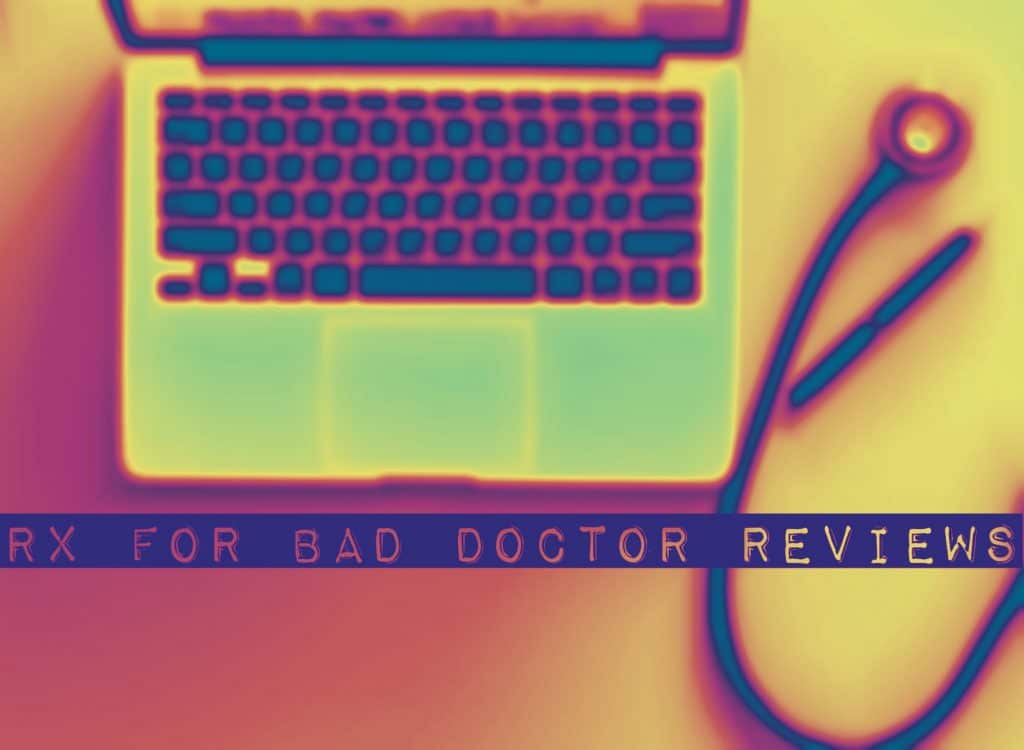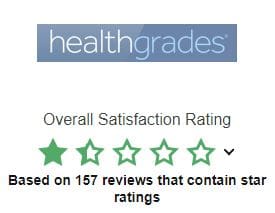The internet is an amazing thing, especially when it comes to researching doctors and dentists. However, thanks to a host of physician review sites, it can also be a source of misinformation that destroys a medical practice virtually overnight. With a few clicks and a couple inflammatory sentences about malpractice, a hostile patient can ruin a doctor’s reputation forever.
Quick Summary
- Physician Reviews Are a Double-Edged Sword: While helpful for patients, review sites often allow misinformation to spread—potentially harming good doctors over minor misunderstandings or unrealistic expectations.
- Patients Don’t Always Understand Medical Decisions: Doctors must make tough calls about health risks, prescriptions, and treatments—yet negative reviews often come from those who disagree rather than those who received poor care.
- Anonymous Reviews Can Be Unfair: Review platforms let users post anonymously, making it hard to defend yourself against false claims or exaggerated complaints.
- Your Online Reputation = Your Practice’s Future: A few bad reviews can damage your visibility, credibility, and new patient acquisition—even if they’re untrue or taken out of context.
- Responding Builds Trust: Publicly addressing concerns shows professionalism and empathy, which can help counterbalance unfair feedback.
- Monitor & Manage Mentions: Stay aware of what’s being said about you online. Regular monitoring helps you catch issues early before they escalate.
- Promote Positive Content: Use ORM strategies to push down harmful reviews by promoting positive articles, testimonials, and your own website content.
- We Can Help Protect You: At Negative SEO Guy, we specialize in managing and suppressing damaging physician reviews—so you can focus on your patients, not your Google results.
Here’s why physician reviews are dangerous, and what doctors can do about it.
Patients with no patience
It is possible to leave reviews on just about everything nowadays, which can have both an upside and a big downside. Medical practices are not restaurants, but they are receiving the same treatment from belligerent patients that eateries get from combative patrons.
We’ve seen more than our share of contentious comments on doctor review sites from patients who got angry about something beyond their doctor’s control, like an issue with their insurance company not covering a treatment, unrealistic expectations that their new veneers would stay pearly-white forever in spite of the fact that they drink black coffee and red wine on a daily basis, or that their doctor made them wait due to an emergency with another patient.
Learning to market your practice and build your online reputation is often the key to a thriving role as a healthcare provider in your city.
Don’t get us wrong, though, we believe in people’s right to share their experience and appreciate the fact that public opinion can be invaluable when it comes to evaluating a doctor or dentist. There are bad doctors just like there are bad restaurants, but unlike a restaurant, a physician is not duty-bound to make sure the patient leaves happy.
Sometimes doctors have to tell patients that they are too fat, that they need to quit drinking, that their children need to be vaccinated, that cigarettes are killing them, that they are responsible for their diabetes, or that they don’t need a prescription for opiates when acetaminophen will do.
Doctors are legally bound to provide a standard of care that is well above what is expected of other businesses. That means advising and treating patients in keeping with best practices, not in validating the self-diagnosing hypochondriac or placating the testy patient who gets angry because they experienced discomfort when their wound had to be debrided or when told by the endodontist that despite what they read on WebMD, they do need a root canal.
Review sites can never capture common issues like this and present the whole story because they thrive on the sensational and simplistic, and that’s one reason why they are a terrible idea. In fact, even leading medical review sites themselves have horrible reviews from users of other review sites. The whole space is a comedy of errors, but it isn’t funny because many excellent and esteemed medical professionals are being ruined in the process.
Physician, heal thyself
If you are a doctor, the most important thing to remember is that some patients are looking for an excuse to rant about your practice online. Bad medical reviews may be a dime a dozen, but the impact they have can be enough to ruin your practice and reputation. Physician review sites allow people to post anonymously, and as long as the reviewer is sharing facts and/or opinions about your professional acumen, they are well within their rights. Disproving their side of the story is practically impossible, because it is a he/she said situation.
So if your medical or dental practice is feeling the withering effects of bad patient reviews, there are things you can do.
First, you can use the internet as a marketing tool to fight fire with fire by suppressing negative reviews and curating a professional profile for your medical practice. Of course, this is only possible if you have a strategy in place to bolster existing positive reviews and to gain new ones.
Next, it is vital to keep abreast of what people are saying about your medical practice online and get control of the message. The problem is, most doctors do not have the time or energy to chase down and keep tabs on every existing review across a number of platforms.
So while the way to limit the amount of damage that negative news can do is to simply be aware of what is being said about your practice at all times. It may be out of sight and out of mind for you, but if the negative news is accessible online, others are seeing it and forming an option about you and your practice because of it.
Finally, you need to take the bad reviews on doctor review sites and make it positive by responding. This involves leaving responses when someone posts a negative review about you or your staff. You want the patient and others who read their review to know that you are aware of their message. They will see that you are trying to get a better understanding of their dissatisfaction and a resolution can then be reached. You just need to make it a point to respond to negative news.
If you or one of your clients are the victim of negative online physician reviews, get in touch with us now and let us get your medical practice back on track.
Source for further reading:
Kim, Leslie, Dale Amanda Tylor, and Christopher Y. Chang. “Marketing your practice: setting yourself apart in a competitive market, online reputation building, and managing patient experience/satisfaction.” Otolaryngologic Clinics of North America 55.1 (2022): 125-135.

